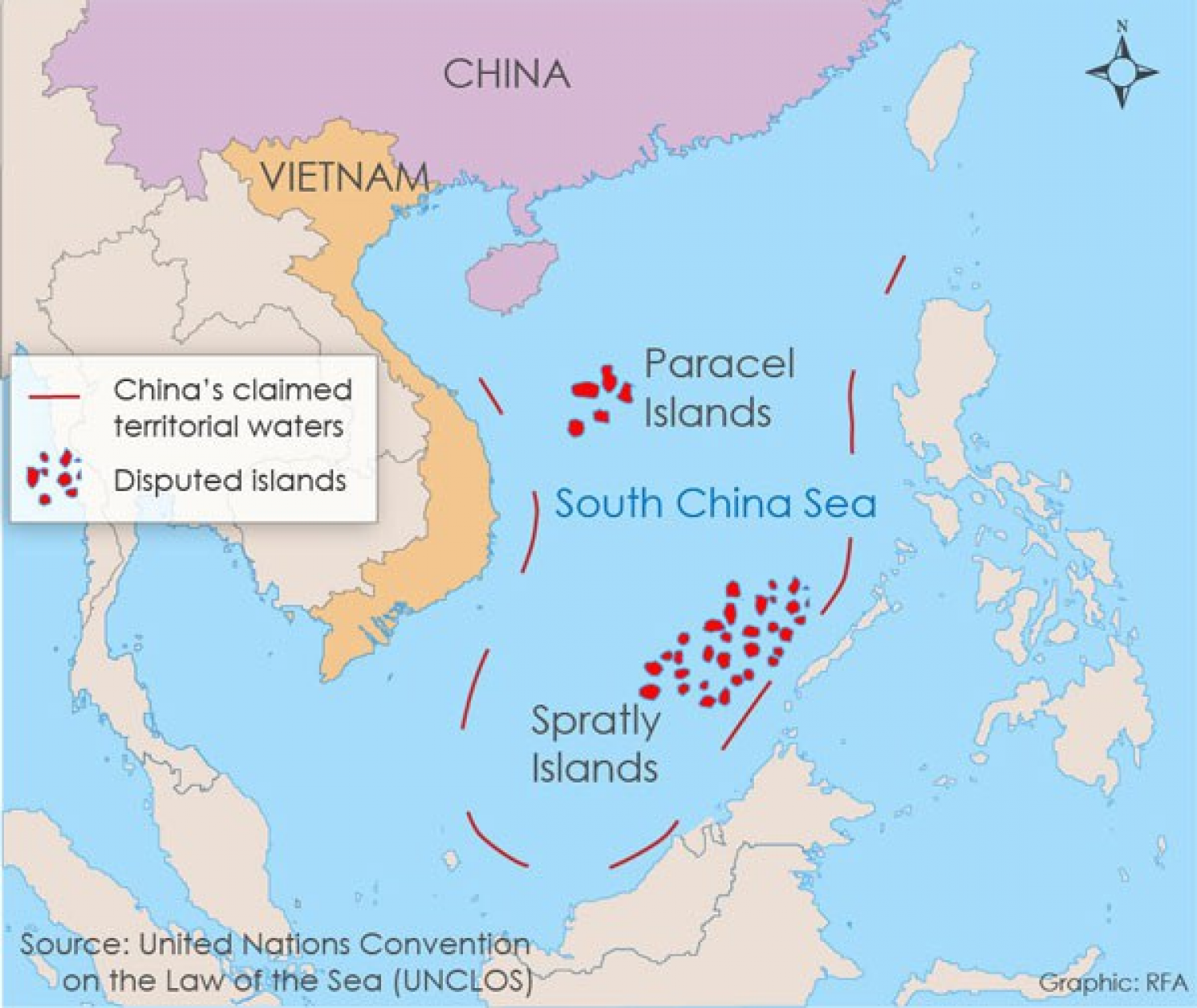
Tsai Administration Embarrassed by U.S. Military Action in South China Sea
By Li Cheng-hsiu
China Times, February 25, 2021
When global think tanks predict the crisis that may most likely trigger war between the United States and China, the Taiwan Strait and South China Sea are the most frequently mentioned hotspots recently. The Taiwan Strait has not been peaceful due to continuous disturbance of China’s army aircrafts. Lately, the South China Sea has not been quiet either.
During the high-level National Security Council meeting on February 9, President Tsai Ing-wen affirmed the U.S. navy for conducting a freedom-of-navigation operation in the South China Sea. However, the statement from the U.S. Seventh Fleet seemed to shame President Tsai’s support. The Seventh Fleet’s press release emphasized that the “freedom-of-navigation operation was to challenge the unlawful restrictions on innocent passage imposed by China, Vietnam, and Taiwan.” This statement is tantamount to denying the claims and sovereignty of the Republic of China in the South China Sea. Since the South China Sea issue is a sensitive and touchy subject for both sides of the Taiwan Strait as well as for the interactions between the United States and Taiwan, the embarrassed Tsai administration can only choose to remain silent lest of bad results either way.
Nonetheless, remaining silent does not mean everything is fine, nor does it mean that those in power can escape the severity of this issue of national security. When President Tsai stated that American ships and aircrafts carrying out freedom-of-navigation operations were “demonstrating the clear U.S. attitude towards challenges to the security status quo in the Indo-Pacific region”, she was already putting Taiwan in the ring of competition between the two great powers—the United States and China. If President Tsai does not sternly refute the U.S. navy’s statement, her silence would make her suspected of betraying national sovereignty.
So the question is, can President Tsai sacrifice national territory and sovereignty simply to align with Democratic Progressive Party’s hostile mentality towards mainland China?
As far as we know, during the presidency of President Ma Ying-jeou from 2008 to 2016, some American think tank scholars had suggested Taiwan to not mention its sovereignty of the South China Sea. The U.S. government even privately asked Taiwan to publicly abandon the existing 11-dash line and only declare sovereignty over the Taiping Island and the Dongsha Islands. America’s intention was to challenge China’s nine-segment line. However, this request was blatantly rejected by the Ma government. Ma’s administration then reiterated the Republic of China’s sovereignty in the South China Sea, stating that it has nothing to do with People’s Republic of China. Nevertheless, the Ma administration was willing to support any measures taken by the United States to maintain peace and stability in the South China Sea.
Under Ma’s leadership, the Kuomintang (KMT) held the bottom line of protecting Taiwan’s sovereignty in the South China Sea. The KMT demonstrated how a party in power should act. It did not compromise even though the cross-strait relations was relaxed, nor did it cave in for the sake of protecting the relationship between Taiwan and the United States.
Without doubt, China is certainly paying close attention to how the Tsai administration handles the South China Sea issue. This is a very tough subject for President Tsai because if she chooses to abandon the 11-dash line, it would be equivalent to declaring independence and war on China.
The South China Sea is a strategic location as well as one of the busiest international waterways. Ever since China began actively expanding land reclamation and militarizing the islands in the South China Sea, neighboring countries have all been actively advocating sovereignty and increasing fortification. This has made the South China Sea region a military conflict focal point in the past ten years. Not only has the U.S. military been using this area as a military training ground, even France and the United Kingdom have announced that they would send in fleets to the South China Sea to restrict the expansion of the People’s Liberation Army. It is obvious that all these countries are aware of the potential threat that China has on the South China Sea and they certainly don’t want China to take control of the channel of the South China Sea for fear that it disturbs the global economy. This is also the main reason why the United States actively advocates for the right to the freedom of navigation.
The Republic of China owns the Taiping Island, which is the largest island in the South China Sea and is the best strategic location. It is essential that the Taiwan government demonstrates its determination to safeguard its sovereignty at the South China Sea for other countries to value Taiwan’s voice. After all, power determines everything when it comes to international politics. Although Taiwan needs the support of the United States to counterbalance China’s military threats, that does not mean that Taiwan should forsake its national sovereignty or even tolerate the U.S. military’s confusion of the freedom of navigation and innocent passage.
The actions of China undermining the status quo in the South China Sea should be condemned by all countries. However, the Tsai administration should not ignore the offenses of the U.S. military exercising freedom of navigation within our country’s sovereignty. The least the Tsai administration should do is to communicate privately through diplomatic channels, otherwise, it would be detrimental to Taiwan’s dignity.
The author is associate researcher at the National Policy Foundation.
From: https://www.chinatimes.com/opinion/20210220003811-262105?chdtv
〈Back to Taiwan Weekly Newsletter〉